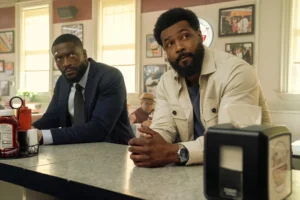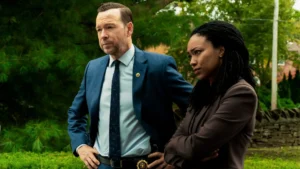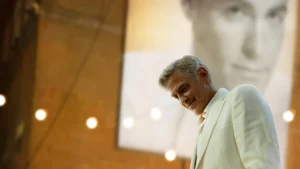And… relax. It’s fine.
Don’t let the overwhelmingly positive critical reaction fool you, though. It isn’t great – or, at the very least, it isn’t quite great enough to constitute any kind of modern genre classic. On balance, Wonder Woman is about as good as one of the better Phase 1 Marvel movies. It doesn’t manage to occupy the coveted space alongside things like The Dark Knight or the recent Logan, but then again it occupies a space all its own: Welcome, ladies and gentlemen, to the first legitimately good DCEU movie. Rejoice.
Of course, it isn’t all about that, is it? Sure, Man of Steel set the bar of quality low, and it has been consistently limbo’d under since then, but Wonder Woman’s success has never solely been about the continued fiscal sustainability of DC’s shared continuity. No, no. Wonder Woman is a first; the first female-led, female-directed comic book movie of this size, scope and prominence in the history of cinema. It’s rare that you can say that, these days. For a film to be the first of anything (except, increasingly, a franchise) is almost unheard of, and for it to be quite this kind of first, especially in a political climate that has shunted issues of representational parity to the forefront of popular culture, well… a tip of the jewelled headwear is, I think, warranted.
It certainly helps that the movie really is good, by almost any metric. One can’t help but imagine what it might look like had it not been obligated to adhere to DC’s muddy, washed-out aesthetic, but minor quibbles like that aside, Wonder Woman is an extremely competent variety of superhero origin story, buoyed by a real earnestness and an extraordinarily charismatic central performance from Gal Gadot. Held up against DC’s previous offerings, it feels like a minor miracle.
Speaking of Gal Gadot, I still have no idea whether or not she can actually act. The leggy Israeli has showed up in plenty of movies, and stolen a fair few scenes, but her screen presence is innate. There’s no sense of craft; her appeal is magnetic by default. Here, especially, as a quizzical fish-out-of-water blundering through a strange new world, she props up what would otherwise be fairly rote genre motions and makes them feel revelatory – which, in a movie about a superhero released in a time when movies about superheroes are at a previously-unimaginable level of quality and prominence, can only be a good thing.

Also good, while we’re on the subject, is how refreshing it feels for a DCEU movie to devote so much time to rounding out a character’s backstory and motivations before dumping them into FX spectacles and generic slow-motion hero-shots. Princess Diana’s traditional origin is kept more or less intact, with some slight riffs here and there that help to reposition Wonder Woman in a slightly more thoughtful space than the 2009 animated feature. We still get Steve Trevor (Chris Pine), the Allied pilot who crash-lands on the magical all-female island of Themyscira, and we still get the Amazons, here led by Queen Hippolyta (Connie Nielson) and General Antiope (Robin Wright). This time, though, the Amazons’ divine duty is specifically to kick the ass of Ares, so Diana is compelled to follow Steve back to the frontlines of the Great War, not because of ideological ambassadorship, but because she believes the conflict is being puppeteered by the God of War himself.
Being set in World War I rather than II is, I suspect, an effort to muddy the morality, and reinforce a broadly condemnatory assessment of war as whole; it’s all bad, there’s good and evil on both sides, and it’s all a matter of how things look from whichever trench you happen to be stood in. It’s pretty difficult to do that when you get Nazis involved, so instead we have a plot orchestrated by a rogue, iron-fisted general (Danny Huston) and Elena Anaya’s Doctor Poison. This also allows for Diana’s inevitable arc: First hopelessly idealistic, then disillusioned by wartime’s complex morality, and then, finally, a stern realisation that the good people are worth defending regardless of their own hubris. Which is all fine, but would have been better served stretched out across a couple of acts rather than collapsed into a couple of scenes. Wonder Woman’s laser-focus and comparatively narrow scope leads, inevitably, to a climactic twist that you’re expecting the whole time and never properly satisfies when it arrives, and a perfunctory final battle against a villain that it’s difficult to care about.
Still, though. On the way there we find time for some legitimately lovely stuff. It’s about time a movie realised that Chris Pine is better served as a love-interest or a snarky comic-relief sidekick rather than a true leading man, and this one lets him be both, and his secretary, played by Lucy Davis, is a wonderful addition. There’s also an instantly-iconic set-piece in which Diana strides in slow-motion across No Man’s Land because she’s appalled at the suffering that both sides seem content to allow, and it strikes me that there’s never been a moment quite like that one for women in superhero movies.
There’s a part of me that feels as if we, as critics, should make some kind of effort to divorce Wonder Woman as a movie from its cultural importance as an artistic event. But there’s another part of me that recognises how inextricably linked the two things are; how the character’s decades of feminist interpretation have finally led to a movie which is forced to shoulder the weight of not just that responsibility, but also the ballast of an awful preceding franchise. Wonder Woman is not only straining to be an individual movie in a franchise of interconnected ones, but also the version of Wonder Woman that is representative of a whole gender in a whole genre of movies. Something had to give.
What matters is that despite Wonder Woman being pulled in multiple directions, it absolutely delivers where it counts. This is a good movie. No qualifiers, no buts, no excuses. It’s good. Perhaps not entirely as good as some people would have you believe, but certainly good enough compared to what I, and many like me, were expecting. Wonder Woman does, in fact, constitute a wonder. Fancy that.




